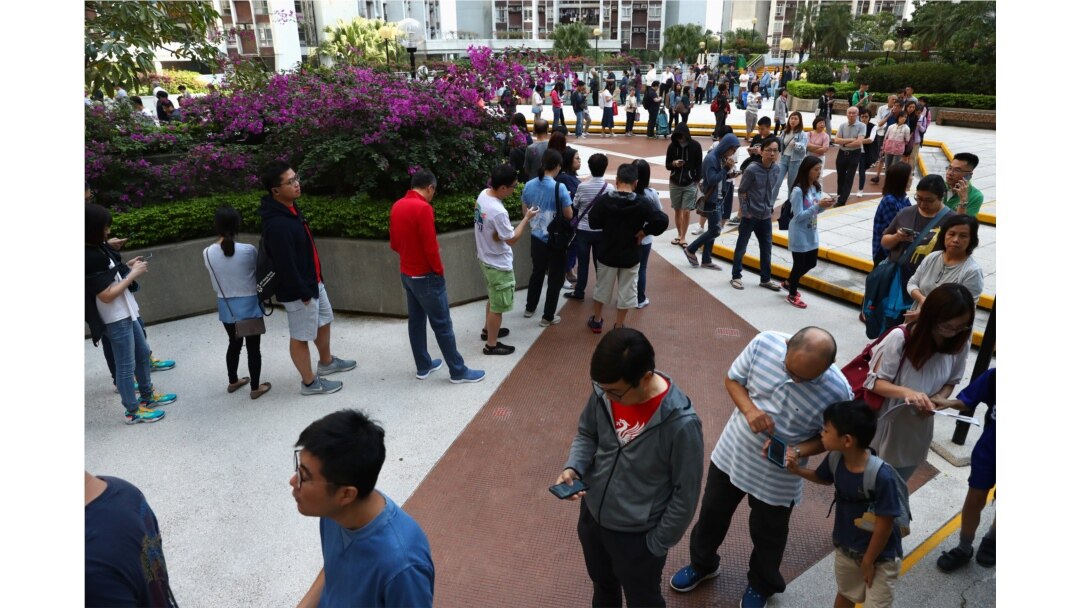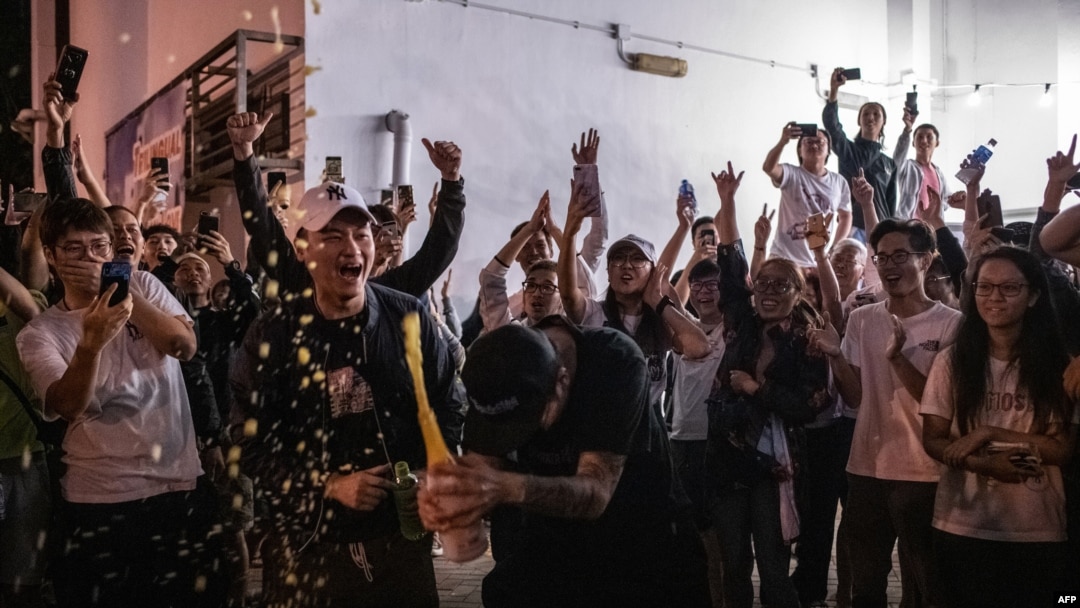Hong Kong pro-democracy forces appear headed for a landslide victory in local elections that saw record turnout, delivering a stunning rebuke to Beijing.
Early voting results Monday showed pro-democracy candidates winning nearly every seat they contested in Hong Kong’s 18 district councils. Pro-democracy candidates led the pro-establishment camp, 278 seats to 42.
If the trend continues, it would be a major symbolic blow to pro-China forces that dominate virtually all levels of Hong Kong’s politics.
It is the latest evidence of continued public support for a five-month-old pro-democracy movement that has become increasingly aggressive.
“Hong Kongers have spoken out, loud and clear. The international community must acknowledge that, almost six months in, public opinion has NOT turned against the movement,” student activist Joshua Wong said on Twitter.
The vote will not significantly change the balance of power in Hong Kong’s quasi-democratic political system. District council members have no power to pass legislation; they deal mainly with hyperlocal issues, such as noise complaints and bus stop locations.
However, the district council vote is seen as one of the most reliable indicators of public opinion, since it is the only fully democratic election in Hong Kong.
Massive turnout
Nearly 3 million people voted in the election -- a record high for Hong Kong, and more than double the turnout of the previous district council election, in 2015.
Voters formed long lines that snaked around city blocks outside polling stations across the territory, many waiting over an hour to vote.
“This amount of people I've never seen. There are so many people,” said Felix, who works in the real estate industry and voted in the central business district.
By nighttime, most of the long lines at voting stations had tapered off, but nearby sidewalks remained filled with candidates and their supporters who held signs and chanted slogans in an attempt to persuade passersby to cast last-minute votes.
“I’m tired, but I think it’s more important to fight,” said Elvis Yam, who waited in line for an hour to vote in the morning and then volunteered to hold a campaign sign for a pro-democracy candidate in the University District.

Voters queue to vote at a polling station during district council local elections on Hong Kong Island, China November 24, 2019. REUTERS/Athit Perawongmetha
Mr. Ma, a voter in the South Horizons West constituency, said he sees the election as a continuation of the protest movement. “Many would like to have a change. So this election is very important," he said.
Police promised a heavy security presence at voting locations. But outside many polling stations, there was no visible police presence. At others, teams of riot police waited in nearby vans. There were no reports of major clashes.
Hong Kong has seen five months of pro-democracy protests. The protests have escalated in recent weeks, with smaller groups of hard-core protesters engaging in fierce clashes with police.
The win “very clearly” shows the public is in support of the movement, says Ma Ngok, a political scientist at the Chinese University of Hong Kong.
“This will, I think, give (Hong Kong) much better support internationally, and also create much more pressure for the Hong Kong government to respond to the demands of the protest,” Ma said.
Electoral staff helps a voter at a polling station during district council local elections in Hong Kong, Nov. 24, 2019.
Wider impact?
Even though district councils have little power, the vote could affect how the territory’s more influential Legislative Council and chief executive are selected in the future.
District councilors are able to select a small number of people to the 1,200-member election committee that chooses Hong Kong’s chief executive. They also have the ability to select or run for seats in the Legislative Council.
“That’s a big deal,” said Emily Lau, a former Legislative Council member and prominent member of the pro-democracy camp. “Because of this constitutional linkage, it makes the significance of the district council much bigger than its powers show you.”
Hong Kong saw a major surge in voter registration, particularly among young people. Nearly 386,000 people have registered to vote in the past year — the most since at least 2003.
Many Hong Kongers are concerned about what they see as an erosion of the "one country, two systems" policy that Beijing has used to govern Hong Kong since it was returned by Britain in 1997.


